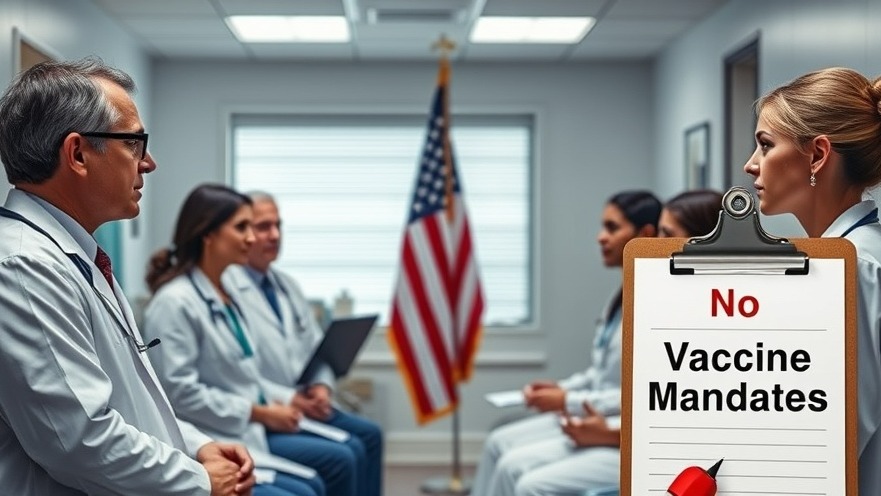
Florida's Bold Move: Ending Vaccine Mandates
In an unprecedented move, Florida is set to become the first state in the U.S. to abolish all vaccine mandates, including those crucial for school attendance. The decision, announced by Florida's Surgeon General Joseph A. Ladapo, alongside Governor Ron DeSantis, is being framed as a push for 'medical freedom.' While this action is positioned as an enhancement of personal liberties, it raises significant concerns within the medical community about the potential implications for public health and disease control.
Understanding the Vaccination Landscape
Currently, all 50 states enforce vaccination requirements to varying degrees, focusing primarily on preventing the outbreak of communicable diseases among children. These mandates are pivotal in maintaining herd immunity and preventing diseases such as measles and whooping cough. Ladapo's announcement indicates an intent to scrap not just the mandates but the very legislative structure that supports them, fundamentally challenging decades of public health policy.
The Rationale Behind Ending Mandates
Supporters of the initiative argue that it bolsters personal choice and respects parental rights, suggesting that families should determine the best health decisions for their children. DeSantis asserts Florida has already made considerable strides towards enhancing individual freedoms, presenting this move as one that aligns with the broader theme of medical autonomy that his administration champions.
The Dangers: Voices from the Medical Community
However, critics fear that rolling back these mandates could lead to a resurgence of vaccine-preventable diseases. Experts warn that reduced vaccination rates can lead to outbreaks, putting vulnerable populations, such as infants and immunocompromised individuals, at greater risk. Organizations like the American Academy of Pediatrics have voiced their concerns, warning that the changes may undermine community immunity and exacerbate existing health disparities.
Healthcare Providers: Navigating New Terrain
For concierge medical practice owners, the impending changes in Florida's vaccination policy drive the necessity for strategic adaptation. With the likelihood of increased exemption requests, practices will need to engage patients in dialogue about immunizations and disease prevention. This foresight is critical, as it may impact not only public health but the operational feasibility of concierge practices that strive to uphold high care standards.
Practical Insights for Practice Management
As these changes may soon put pressure on healthcare providers, practicing physicians must prepare for a landscape where the demand for vaccination discussions will become paramount. Here are some actionable insights that can help concierge practices navigate these complexities:
Educate your patients: Equip your team with knowledge on vaccine efficacy and safety to effectively communicate these points with patients.
Develop robust patient engagement strategies: Create informational materials and discussions around vaccination relevance to empower patient choices.
Monitor public health trends: Stay informed on vaccination rates and outbreaks in your local community to tailor your practice’s approach proactively.
Looking Ahead: Future Implications for Public Health
The proposed legislative changes create a potential turning point in how states approach vaccination mandates and public health responsibilities. Should Florida successfully implement these changes, it could set a precedent that other states might follow, affecting public health policies nationwide. Thus, the implications stretch far beyond state borders, stirring conversations about the delicate balance between personal choice and public health mandates.
Call to Action: Stay Informed and Engage
The unfolding situation in Florida warrants attention from medical practices across the country. As changes materialize, engaging in local health conversations and advocating for responsible policies could be vital. It's essential for healthcare providers to remain active participants in the dialogue surrounding vaccination policies to protect their communities effectively.
 Add Row
Add Row  Add
Add 




Write A Comment